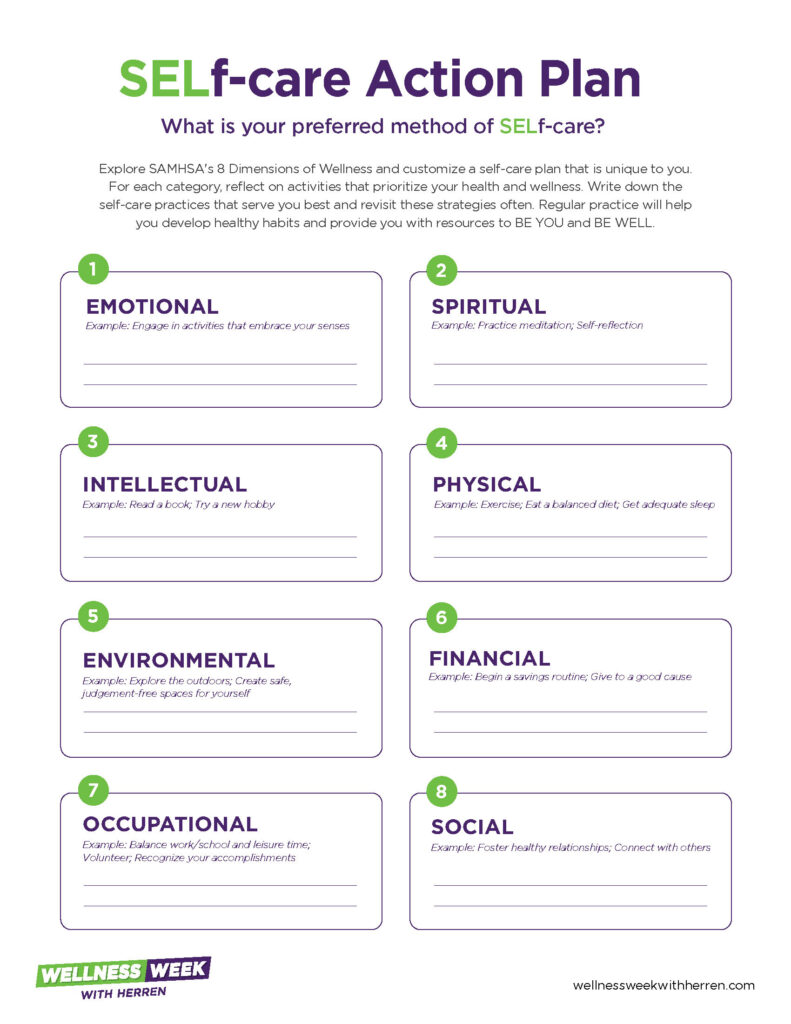Offer yourself compassion in the new year

Reflecting on New Year’s resolutions past, present, and future
Ringing in the new year is filled with time-honored traditions, special meals, and gatherings with family and friends.
But perhaps the most common act associated with the calendar turning to Jan. 1 is the New Year’s resolution. At the gym I work at, I often hear, “I want to lose weight,” “I want to quit (fill in the blank),” and so on. While making healthier lifestyle changes is a great way to start 2024, why not take small, simple steps daily instead of something more grandiose?
Take a moment to reflect on a New Year’s resolution you have had in the past or one you are hoping to fulfill in the near future. Ask yourself why you made the resolution in the first place. Is it due to societal pressures? If not, great! Otherwise, it can be harmful to your mind, body, and well-being if you are feeling pressured to accomplish something to satisfy others.
Be mindful of these thoughts when they arise. Be observant of their root cause: Did you feel pressure growing up, at school, at home, or in your adult life?
Take a deep breath and allow self-compassion in.
What is self-compassion? Dr. Kristin Neff explains there are three elements to it:
- Self-kindness vs. self-judgment
- Being warm and understanding toward ourselves when we suffer, fail, or feel inadequate, rather than ignoring our pain or being hard on ourselves.
- Common humanity vs. isolation
- Suffering is a part of the human experience. We do not come out of life unscathed.
- Mindfulness vs. over-identification
- A balanced approach to unpleasant emotions. Observing and honoring our feelings and thoughts as they are.
- “Feelings come and go like clouds in a windy sky. Conscious breathing is my anchor.”
-Thich Nhat Hanh
Self-compassion is not:
- Self-pity
- Self-indulgence
- Self-esteem
Self-compassion can be difficult to feel and experience. Acknowledge this too. When going through struggles or unpleasant emotions, we can be hard on ourselves or criticize ourselves. We may suppress or over-identify. Observe thoughts with openness and curiosity. Honor your humanness. Click the button below to test your level of self-compassion
(Source: Dr. Kristin Neff: Self-compassion- selfcompassion.org)
Tips for practice:
I had a beautiful opportunity in November to participate in a self-compassion workshop in which we completed several body scans, guided meditations, and a listening activity. I want to share the information with you and its impact on me in hopes that you will try it and experience similar positive benefits.
- To start, ask yourself this question: What is possible when I show myself compassion? Maybe you journal some thoughts or also acknowledge what you are feeling in your body.
- If it is difficult to explore, consider how you would offer compassion to a friend or loved one.
- Find a comfortable seat and close your eyes.
- Notice your breath and body, and observe what happens when you explore self-compassion.
- Allow yourself to be nurtured. Maybe place a hand or two on your heart and breathe deeply, filling yourself with compassion and love. As you exhale, release any judgment.
- You can also give yourself a hug or clasp your hands together to connect with yourself.
- Whatever feelings arise, simply notice and observe. There is no right or wrong here in this space.
- You can repeat these words as you continue to explore your breath and body:
- “May I be at peace. May I be at ease. May I be kind and gentle to myself.”
Click the button below for Other exercises and practices for self-compassion:
As we talk about self-compassion, I also want to discuss self-care and how having a self-care routine can improve our lives.
What comes to mind when you think of self-care? Spa days? While that can certainly be self-care, there is a common misconception about self-care. Some self-care can actually be difficult or painful.
Self-care is the practice of wellness to improve your health.
- Self-care can look different for each individual.
- Self-care is not selfish. (Living in our world, it can often feel uncomfortable tending to our own needs before others.)
- Self-care is vital to our mental health and well-being.
In a national survey, Americans cited the benefits of self-care as enhanced self-confidence (64%), increased productivity (67%), and happiness (71%). From a physical health perspective, self-care also reduces heart disease, stroke, and cancer.
(Source: National Council for Mental Wellbeing)
Located below is a self-care action plan to assess what dimensions you are currently using, as well as others you may want to take into consideration.

Remember, small and simple steps make a large difference. Taking one breath can be self-care. Be gentle and patient with yourself as you navigate this new year.
Thank you,


Allison LaRussa, B.A., CPS, RYT (she/her)
AVP, Health Humanities, Trauma-Informed Sanctuary Frameworks, and Justice, Equity, Diversity, Inclusion, and Belonging
The Wright Centers for Community Health and Graduate Medical Education








